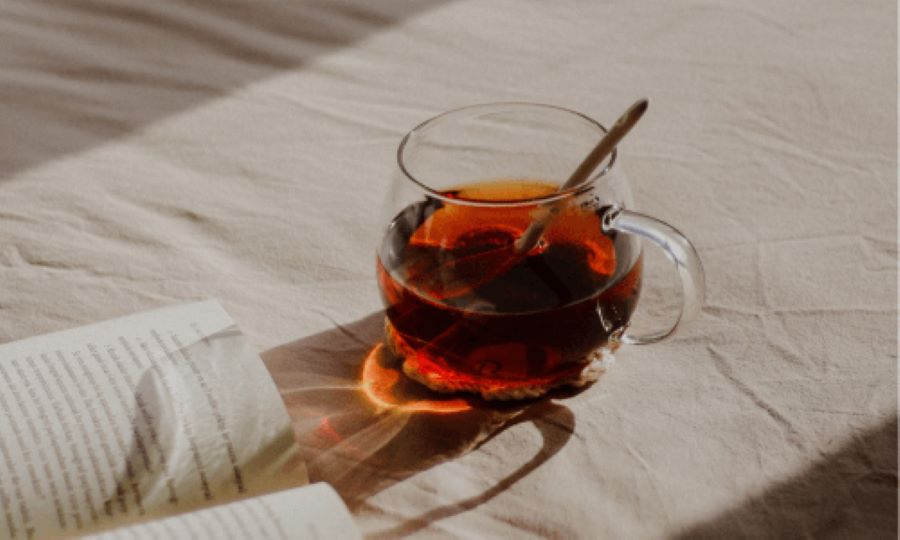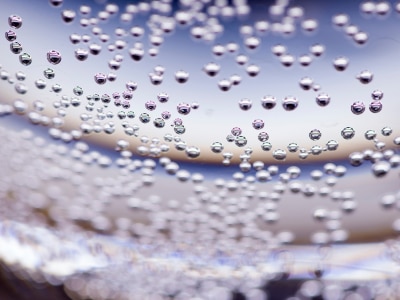Does Tea Count as Water Intake?

A cuppa is a quintessential part of British culture, whether it's a builder's tea to start the day, or an Earl Grey to wind down in the evening. But with all the water that goes into making tea, a brewing question is: does drinking tea count towards your water intake? Let's delve into this topic further – keep on reading!
So, can tea count as water intake?
While tea itself isn't inherently hydrating, the water it's made with is the best source of hydration. When sipping on your well-deserved brew, it is important to note that tea usually contains caffeine, which when consumed in high quantities can have some mild diuretic effects. Thankfully however, you’d have to drink more than 8 cups a day to notice any real diuretic effect. So, cheers to a lovely cuppa!
Is drinking a lot of tea the same as drinking water?
As mentioned, the water in a cup of tea can hydrate you, but drinking a lot of tea is not the same as drinking water.
To maintain optimal hydration and overall health, it's recommended to balance tea intake with plenty of plain water and to limit added sugars, milk or milk alternatives.
Different types of teas and their impact on hydration
Tea comes in many varieties. Let's explore some popular types and their potential impact on hydration.
Do herbal teas count as water intake?
Yes, herbal teas can definitely contribute to your daily water intake. Unlike black and green teas, herbal teas are generally caffeine free, making them a great option without the potential side effects of caffeine we mentioned before. Popular choices include chamomile, peppermint, rooibos, hibiscus, ginger, and mint. These teas offer a wide range of flavours and can be enjoyed hot or iced.
Black Tea and Green Tea
Black tea is an oxidized tea, typically stronger in flavour than other varieties and containing caffeine. Whilst, green tea is not oxidised, but it does contain caffeine.
Oolong Tea
Oolong tea is a semi-oxidised tea with flavours ranging from light and floral to dark and robust. It also contains caffeine.
White Tea
White tea is harvested at the start of the season and is generally made from the young leaves and buds. It is naturally low in caffeine.
Pu-erh Tea
Pu-erh tea is a unique fermented tea traditionally made in Yunnan province and contains caffeine.
Does drinking hot or cold tea count differently?
Whether you like your tea hot or cold, both can contribute to fluid intake. When choosing between enjoying a hot or cold tea, it usually comes down to weather conditions and personal preference. Both forms can be equally delightful, so enjoy your tea at any temperature!
Recommended water intake
While drinks such as teas and certain foods can help, water is a great way to hydrate! Whether it's natural mineral water or spring water, The European Food Safety Authority (EFSA) recommends a water intake of 2.5 litres for men and 2.0 litres per day for women (via food and drink consumption). Although, your needs can vary based on your lifestyle and climate.
Frequently Asked Questions
-
What happens if you only drink tea and no water?
Relying primarily on tea, especially caffeinated varieties, may not be sufficient for meeting your daily fluid needs. Caffeine can have a mild diuretic effect, increasing urine production, particularly at higher consumption levels. To maintain optimal hydration, it's essential to drink the recommended 6-8 glasses of water per day, in addition to your tea consumption.
-
How much tea is too much?
While the exact amount of tea that's too much can vary from person to person, it's generally recommended to limit your intake to no more than 4 cups a day. Excessive consumption of caffeinated tea can lead to side effects such as anxiety, insomnia, and digestive issues.
-
Does tea contain caffeine?
Yes, green, black, white, and oolong teas contain caffeine, while most herbal teas are caffeine-free.
-
Can drinking tea dehydrate you? What about decaf tea?
Drinking tea in moderation does not dehydrate you. However, excessive consumption of caffeinated tea, could cause mild diuretic effects. Although decaffeinated tea has most of the caffeine removed, a little remains – so, it can contribute to your fluid intake.
Final thoughts
Tea can be a delicious and refreshing addition to your daily routine, especially if you're looking for ways to drink more water. However, it’s important to remember that tea isn’t a magic potion. Try to balance your tea consumption with water to keep your body happy and healthy.

Soda Water vs Sparkling Water
Soda water vs sparkling water: what’s the real difference? Find out how they’re made, how they taste, and how seltzer and carbonated water fit into the mix.
Take a look
What are the Benefits of Lemon Water? | Buxton Water
Learn the benefits of lemon water, including the benefits of hot lemon water, and how to make your water more flavourful with less.
Take a look
Does Tea Count as Water Intake?
Does drinking tea contribute to your daily water intake? Learn if tea hydrates you, which types work best, and how to balance tea with water for effective hydration.
Take a look
Refreshing Sparkling Water Mocktail Recipes
Discover refreshing sparkling water mocktail recipes from Buxton Water. Perfect for any occasion, these non-alcoholic drinks are sure to delight.
Take a look
Hydration Routine: Tips to drink more water and stay hydrated.
This daily hydration routine helps you drink enough water and stay hydrated. Simple tips to make water a part of your day!
Take a look
Hydration Hacks for Kids: Top Tips to Keep Your Child Drinking Water
Discover fun and effective hydration tips for kids to keep them drinking water all day and staying healthy and hydrated.
Take a look
Flavour Infusions: Staying hydrated with water | Buxton® Waters
We’ve listed below some refreshing alternatives to jazz up your water routine and help you more easily maintain a healthy lifestyle.
Take a look
Top Hydration Tips for Outdoor Adventures: From Camping to Cycling
Discover hydration tips for outdoor adventures: daily water intake, best drinks, and how staying hydrated helps maintain your physical and mental health.
Take a look
The Power Of Hydration
Water is valuable for many reasons. Understanding the power of hydration for your health and wellbeing is vital. Find out all you need to know, here.
Take a look